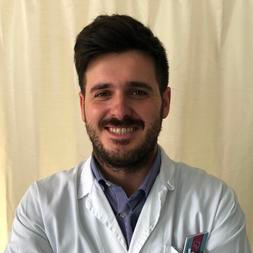Oncological Rehabilitation: Strengths and Weaknesses for a Global Interdisciplinary Management of the Cancer Patient and Novel Future Perspectives during COVID Emergency
A special issue of International Journal of Environmental Research and Public Health (ISSN 1660-4601). This special issue belongs to the section "Health Behavior, Chronic Disease and Health Promotion".
Deadline for manuscript submissions: closed (26 June 2023) | Viewed by 3349
Special Issue Editors
Interests: rehabilitation; pain; posture and balance; exercise; breast cancer
Special Issues, Collections and Topics in MDPI journals
Interests: physical and rehabilitation medicine; cancer rehabilitation
Special Issues, Collections and Topics in MDPI journals
Interests: cellular longevity and exercise; stem cell research
Special Issues, Collections and Topics in MDPI journals
Special Issue Information
Dear Colleagues,
Oncological rehabilitation is based on reaching an adequate quality of life for cancer patients, helping the patient and his/her family to adapt to living standards, as close as possible to those preceding the disease, with the aim of minimizing physical disability, functional and psychological deficits. The rehabilitation process in cancer patients requires a multidisciplinary and interdisciplinary approach that is based on an individual project according to the specific needs and outcomes that take into account the different phases of taking charge of the cancer patient: before and after surgery, during palliative and/or pharmacological treatment, in the phase of social and familial reintegration. Therefore, a complex and long rehabilitation path, which even before the COVID-19 emergency, recognized some barriers in its practical application and which, to date, has become even more complex in its implementation.
Then, virtuous and novel rehabilitation paths are desirable in cancer patients starting from global care, taking into account the bio-psycho-social model and proposing solutions to favor a rehabilitation alliance, even in home-settings or in telerehabilitation, together with, or instead of, traditional settings (outpatient or inpatient), in order to guarantee the patient a reduction in disability and an adequate quality of life.
Dr. Teresa Paolucci
Dr. Francesco Agostini
Dr. Caterina Pipino
Guest Editors
Manuscript Submission Information
Manuscripts should be submitted online at www.mdpi.com by registering and logging in to this website. Once you are registered, click here to go to the submission form. Manuscripts can be submitted until the deadline. All submissions that pass pre-check are peer-reviewed. Accepted papers will be published continuously in the journal (as soon as accepted) and will be listed together on the special issue website. Research articles, review articles as well as short communications are invited. For planned papers, a title and short abstract (about 100 words) can be sent to the Editorial Office for announcement on this website.
Submitted manuscripts should not have been published previously, nor be under consideration for publication elsewhere (except conference proceedings papers). All manuscripts are thoroughly refereed through a single-blind peer-review process. A guide for authors and other relevant information for submission of manuscripts is available on the Instructions for Authors page. International Journal of Environmental Research and Public Health is an international peer-reviewed open access monthly journal published by MDPI.
Please visit the Instructions for Authors page before submitting a manuscript. The Article Processing Charge (APC) for publication in this open access journal is 2500 CHF (Swiss Francs). Submitted papers should be well formatted and use good English. Authors may use MDPI's English editing service prior to publication or during author revisions.
Keywords
- disability
- cancer
- rehabilitation
- dysfunction
- posture
- exercise
- quality of life
- multidisciplinary
- cancer survivorship
- pain







